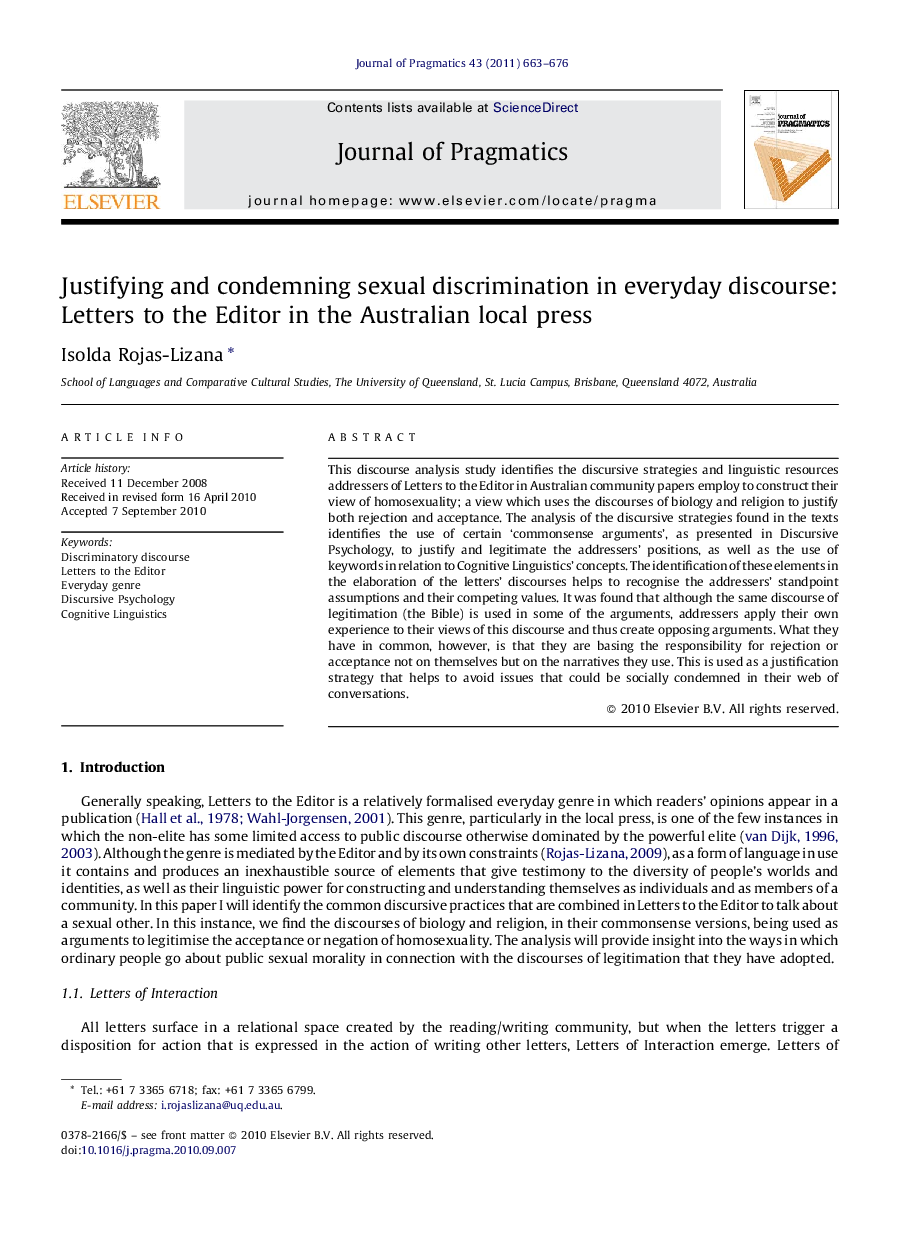| کد مقاله | کد نشریه | سال انتشار | مقاله انگلیسی | نسخه تمام متن |
|---|---|---|---|---|
| 933585 | 923349 | 2011 | 14 صفحه PDF | دانلود رایگان |

This discourse analysis study identifies the discursive strategies and linguistic resources addressers of Letters to the Editor in Australian community papers employ to construct their view of homosexuality; a view which uses the discourses of biology and religion to justify both rejection and acceptance. The analysis of the discursive strategies found in the texts identifies the use of certain ‘commonsense arguments’, as presented in Discursive Psychology, to justify and legitimate the addressers’ positions, as well as the use of keywords in relation to Cognitive Linguistics’ concepts. The identification of these elements in the elaboration of the letters’ discourses helps to recognise the addressers’ standpoint assumptions and their competing values. It was found that although the same discourse of legitimation (the Bible) is used in some of the arguments, addressers apply their own experience to their views of this discourse and thus create opposing arguments. What they have in common, however, is that they are basing the responsibility for rejection or acceptance not on themselves but on the narratives they use. This is used as a justification strategy that helps to avoid issues that could be socially condemned in their web of conversations.
Journal: Journal of Pragmatics - Volume 43, Issue 2, January 2011, Pages 663-676